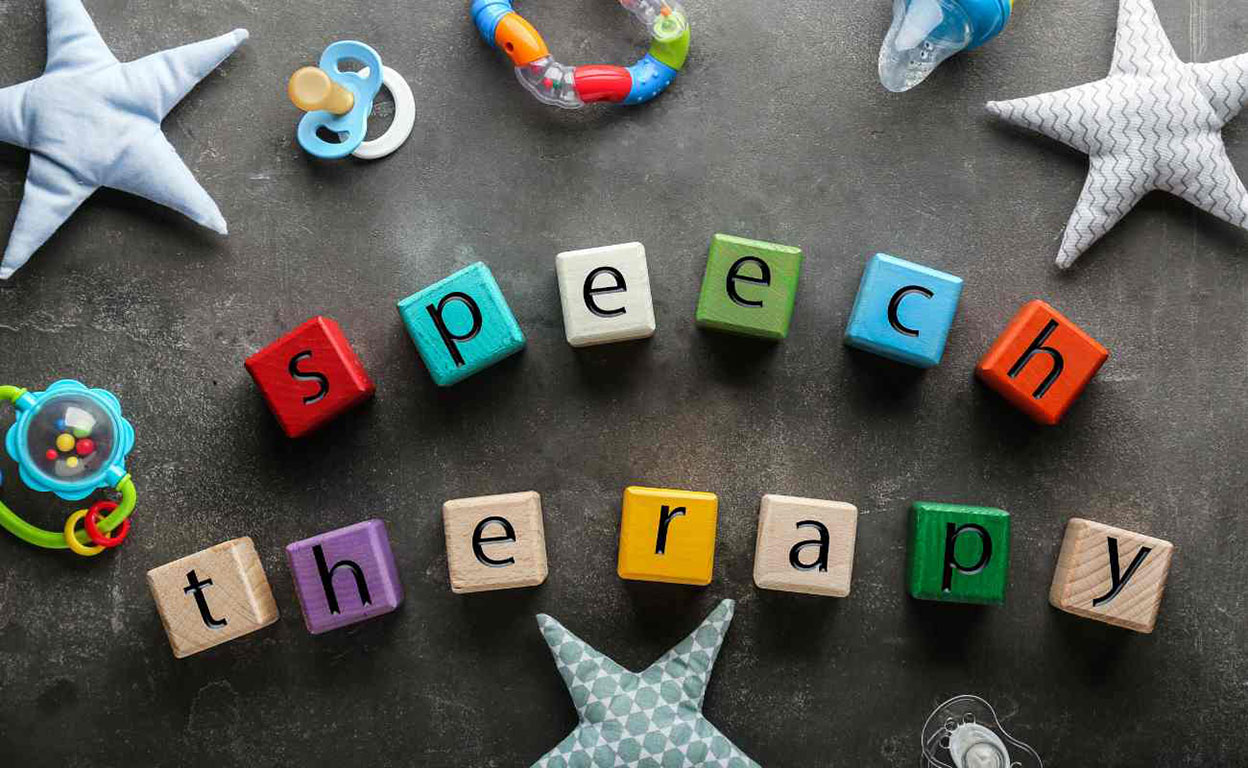
Speech therapy refers to the evaluation and treatment of individuals with communication disorders.
These disorders may affect their ability to speak, listen, read, write, or understand language. It is essential for individuals with developmental disabilities, neurological disorders, trauma, and anatomical abnormalities.
It involves an assessment of the individual’s communication skills and goal-setting for treatment.
Treatment techniques may include voice, fluency, language, or articulation therapy.
Causes of speech disorders
Speech disorders are a common issue affecting many people of different ages globally. These disorders stem from various causes, including developmental disabilities, neurological disorders, trauma, and anatomical abnormalities.
Developmental disabilities occur as a result of a child’s delayed development in some areas like language skills. Neurological disorders such as cerebral palsy, autism, and Down syndrome affect a person’s communication ability.
Trauma resulting from accidents, injuries, and surgeries can damage the speech organs, leading to speech disorders.
Anatomical abnormalities such as cleft palate, tongue tie, or spina bifida can also cause speech disorders.
However, these causes aren’t the end of the world, and individuals can get the right treatment through early intervention
Speech therapy aims to correct speech disorders and enhance communication. It involves evaluations and assessments, setting achievable goals, using speech therapy activities such as tongue exercises, speech drills, and games, and involving parents in therapy.
Consistency is vital for success.
Types of speech disorders
You may not realize it, but speech is a complex process that involves multiple components. Speech disorders can arise due to issues in any or all of these components.
The four major types of speech disorders are articulation, fluency, voice, and language disorders.
Articulation disorder refers to difficulty in producing sounds or words correctly. It may involve substituting or distorting a sound, or omitting a sound altogether.
Fluency disorder, on the other hand, is characterized by a disruption in the rhythm or flow of speech. This can manifest as stuttering, in which the speaker repeats or prolongs sounds, or has hesitations or pauses in speech.
Voice disorder refers to changes in the pitch, rate, or quality of voice. It can result in hoarseness, breathiness, or harshness of voice.
Language disorder, the most complex type of speech disorder, pertains to difficulty in understanding or using spoken or written language. It may need help with vocabulary, grammar, or sentence structure.
Speech therapy can address all of these disorders, helping individuals improve their communication skills, confidence, and overall quality of life.
The speech therapy process
The speech therapy process involves multiple steps that help assess and treat speech disorders.
The process typically begins with evaluation and assessment, which is crucial for identifying the type and severity of the disorder.
During this step, the speech-language pathologist will conduct a variety of tests, including standardized tests and informal assessments, to determine the strengths and weaknesses of the patient’s communication skills.
Once the evaluation is complete, the next step is goal setting. The goals of therapy should be tailored to the patient’s specific needs and abilities. Setting realistic goals that can be achieved within a reasonable amount of time is important.
Goals can include improving speech production, increasing language comprehension, and enhancing overall communication skills.
After setting goals, the next step is treatment techniques. The type of treatment used will depend on the specific goals and needs of the patient. Therapy can include a variety of techniques, such as articulation therapy, fluency therapy, voice therapy, and language intervention.
Finally, parent involvement in therapy is an important component of the speech therapy process. Parents can play an active role in their child’s therapy by practicing new skills at home, providing feedback to the therapist, and helping their child apply new skills in real-life situations.
Parent involvement helps ensure continuity between therapy sessions and promotes long-term success. Overall, the speech therapy process is a collaborative effort between the patient, the speech-language pathologist, and often, the patient’s family.
Through evaluation and assessment, goal setting, treatment techniques, and parent involvement, patients can make progress toward improving their communication skills and enhancing their overall quality of life.
Benefits of speech therapy
Improved communication skills can lead to better social interactions and stronger relationships with family and friends.
Clients who undergo speech therapy may also experience increased self-esteem and confidence, which can lead to success in other aspects of life.
Academic performance can improve as well, as communication is essential in many learning environments.
Reduced social anxiety can also result from improved communication skills and increased confidence, making it easier to navigate challenging social situations.
Overall, the benefits are vast and far-reaching and can have a significant impact on quality of life.
Speech therapy for adults
We often associate speech therapy with children who have difficulty with communication. But, did you know that adults can benefit too?
One group that could benefit from speech therapy is stroke survivors. Our brains control everything we do, including speech.
When the brain is damaged due to a stroke, it can lead to communication difficulties. Speech therapy can help stroke survivors regain their ability to speak clearly and confidently.
Another group that can benefit from speech therapy is those who have suffered from traumatic brain injuries. Depending on the location and extent of the injury, it can affect speech and language skills.
Speech therapy can help improve these skills and help the individual to communicate effectively.
Lastly, speech therapy can also be beneficial for those with Parkinson’s disease. Parkinson’s can cause difficulty with speech due to the tightening of the muscles in the throat. Speech therapy can help manage these symptoms and improve communication. So, if you thought speech therapy was just for kids, think again. It’s never too late to work on improving your speech and communication skills.
Speech therapy is an essential process to help individuals overcome speech and language disorders caused by various possible factors, including anatomical abnormalities, developmental disabilities, neurological disorders, and more.

